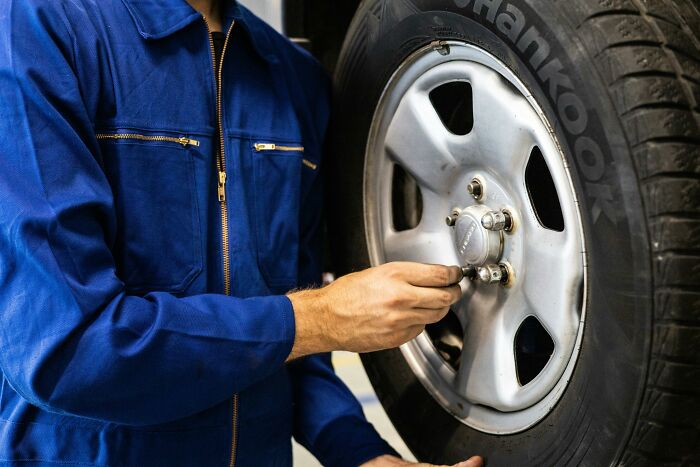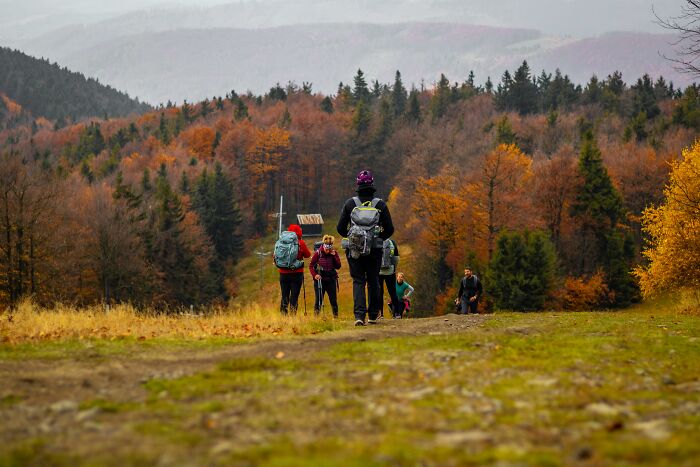Take a little time, however, to imagine the possibilities: What can go wrong? People can get hurt or sick, you could encounter car trouble, you might be the victim of a crime such as theft, the weather could change unexpectedly, or problems could arise due to the type of environment through which you’re driving. It’s a good idea to do this brainstorming as part of your planning, so you can adapt the list below to your needs. We’ve combed the internet and done some of our own brainstorming, but the list we developed is not exhaustive; customize it to suit the needs of your particular group and your specific plans.
More info:unitedvanrentals.com
RELATED:

Image credits:unsplash.com
Plan the Financial Aspect
For many people, money is the chief consideration when planning a road trip: Can you afford it? But here’s something many would-be travelers don’t consider: if you’ve budgeted for lodging, campground fees, attractions, and activities, do you have enough money left over for road expenses like fuel, tolls, ferry passage, and food? And—this is important—have you set aside money for emergencies, such as car repairs?
Tailor the financial plan for your trip so that you have a safety cushion. If you’re planning a long, involved trip that covers great distances and includes many activities, plan it far enough in advance so you can save up for it. Check with your bank—some offer vacation savings accounts.
Be Ready to Pay
Don’t just settle on bringing your debit/ATM card; it’s a good idea to bring a credit card for emergencies and some cash to keep all your bases covered. Also, if you plan on crossing any borders, check to see if your bank will exchange cash, as they are usually the cheapest option for currency exchange.
A roll of quarters or other coins can also be quite helpful when using toll booths across the country. Sometimes, there may be an attendant who can accept a card, but many toll booths still require coins. Those same coins also come in handy for parking meters.
Be Prepared
There are many tools and templates online that can help you create a detailed written itinerary, so you have a list of the places you want to visit and things you want to do ready. It would be a shame to miss something hundreds or thousands of miles away because you forgot about it when you were in the neighborhood.
If you plan on camping, research which campgrounds offer the amenities you want. Whether you’ll be roughing it in the wilderness, glamping in luxury, staying in hotels, or visiting friends and family, it’s important to pack what you’ll need for your planned activities so you don’t have to buy things in a pinch. The road has its hazards, and if you put thought and effort into smart preparations before you go, you can save yourself a lot of time, money, and aggravation. You can’t pack for every contingency, but there’s a lot you can anticipate.
Critical Needs
Make sure to pack items you use daily, such as phones, tablets, laptops, and others, including:
-Chargers-Medical devices, such as blood glucose monitors and hearing aids-Prescription medications to last the entire trip-Over-the-counter medications you use regularly-Toiletries
Bonus: Pack any small items and jewelry in an organizer to keep them together.
Vehicle Safety

Image credits:www.pexels.com
Vehicle Necessities
Be sure to pack what’s needed to keep you safe even in the middle of nowhere. If you’re far enough from help, you may need to keep yourself safe and comfortable until help arrives. Here are a few things you should have handy in case of vehicle trouble.– Jumper cables– Invest in a portable EV charger (If you have an electric vehicle)– Gas can– Bottle jack– Tire iron– Tire key – dealers don’t advise you of this, but late-model cars come with a special key for the lugnuts on your tires. – No mechanic will be able to remove the tire without it.– Portable, rechargeable tire inflator– Emergency lights or flares– Small tool kit– Owner’s manual– Several flashlights– Snacks and beverages – if you pack healthy, natural snacks to keep your crew fed and happy, there’ll be less need to buy junk food at pit stops. There are plenty of neat, easy-to-share snacks such as individually wrapped cookies, too!– Extra blankets, in case you get stuck when it’s cold out
Consider Renting
One way you can save yourself some of these worries, limit wear and tear on your vehicle, and possibly travel more comfortably is to rent a large vehicle such as an RV, trailer, or a high-quality van rental. If you decide to use this method, ensure before renting that the company provides the necessary supplies and does the necessary checks so you’re prepared without so much work. Also, make sure to check where the vehicle can be returned.
Documentation
Crucial documentation is a must for any road trip in order to avoid any hefty fines or being denied access to certain places/destinations. All riders in the vehicle should bring (if applicable):– Driver’s license (for all who will be operating the vehicle)– Current vehicle registration and insurance card– Passports – you need them in order to pass between the US and Canada or the US and Mexico.– Health insurance cards, including dental and prescription– Paper maps in case your phone or GPS loses service
Personal Safety
Some important items that you’ll need if you get into a bind or even just some things that will help you get more comfortable include:– Flashlights– First aid kitInsect bite injection medication (if needed)– Sunscreen– Insect repellent– Bear spray (if you plan on camping)– Drinking water
Clothing
Consider the season in which you’ll be traveling, and what the weather will be like in places where you’ll be visiting. Also consider the activities you’ll be doing, and pack appropriately. It would be a shame to have to buy clothes on your travels. Consider also packing small containers of your favorite laundry products if you plan to use laundromats.– Swimwear (there are often unexpected opportunities to go for a swim)– Sleepwear– Season- and activity-appropriate footwear – for example, don’t go hiking in the mountains in flip-flops.– Season-appropriate jacket(s)– Winter hat, scarf, and gloves, or a cool sun hat, as is appropriate
Camping Gear

Even if you don’t plan on camping, packing some survival gear is a great way to be prepared for anything your road trip throws at you. If you plan on camping, we recommend the entire list, but if that’s nowhere in your plans, maybe just take a few things to be safe.– Season-appropriate sleeping bags and pads– Tent– Portable stove– Plastic plates/cups/cutlery– Cookware– Packed cooler– Tarp– Rope
Get Good Advice
It’s important to continue educating yourself. Read reviews of all the places you’re considering stopping. Join forums to learn from other travelers’ experiences. You might discover a clever way of organizing, a great safety tip you never thought of, or some weird thing people carried that came in handy when unexpected situations arose. While we all want adventure, it’s best to plan and prepare for safety and comfort on the road.
326views326views
You May Like40 Unspoken Rules Of Air Travel That Every Passenger Should Know Before BoardingRugile Baltrunaite46 Road Trip Ideas For Those Who Can’t Wait To Hit The RoadNeilas Šurkus44 Terrifying Theme Park Rides That Will Make You Say “Nope”Neilas Šurkus
Rugile Baltrunaite
Neilas Šurkus
Travel